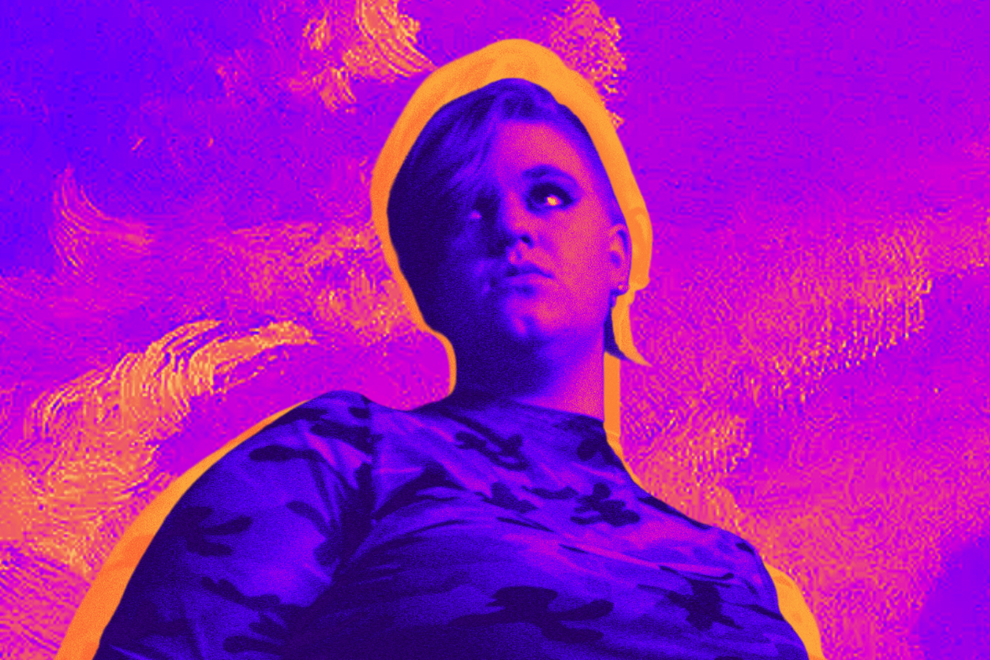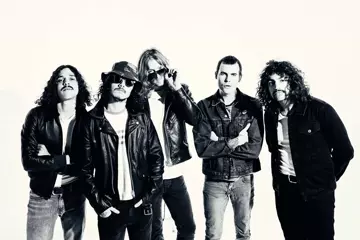Emerauld is one of the hardest working musicians in Adelaide right now. At the dimpled age of nineteen, she’s already had a career that has required a phenomenal amount of talent and resilience - and it doesn’t look like she’s slowing down any time soon.
“I started performing at age nine,” she explains amicably, her golden eye-shadow glittering. Her hair is emerald green, of course. “I started working at eleven. Doing gigs at local pubs, some open mics.” High school came around and then it was on to nice, expensive wineries. “At fourteen, fifteen, I started focusing more on original music. I released my first original song at age fourteen. And then triple j picked that one up. That was really fun.”
And then, at the start of year 12, Emerauld was on Australian Idol.
“The actual audition process was way before the airing of the TV show,” she clarifies. (She’s had several people ask her if the show was live.) “We’re not actually allowed to choose our own songs.” The contestants present a list of songs that they feel capable of singing to the judges, who select from the options. They are never afforded the opportunity sing a whole song. “It’s a maximum of 60 seconds, just a chorus and a verse.”
It wasn’t necessarily the most healthy environment to be in all of the time. Those talent-based competitions often have the air of a slightly tamer Hunger Games about them. Emerauld acknowledges, “There’s an inherent sense of competition. We’re all there for the same reason. We want to kick each other’s arses and win the competition.”
Was there a highlight of the show for her?
“I got to hug Meghan Trainor.” The All About That Bass singer was a judge on the show that year. “That was great. I think about it every day.”
It was an opportunity that she is deeply grateful for and incredibly proud of, but the experience was not without its challenges.
“[Australian Idol] definitely gave me the full range of emotions. It was day after day after day of long hours.”
Don't miss a beat with our FREE daily newsletter
She runs me through the hectic schedule: “We were in a hotel room in Sydney, and we pretty much would wake up, have breakfast at like 5:30. meet down at the front of the hotel at six, and just go do interviews, practice, figure out what our challenge was going to be, blah, blah, blah.”
She is careful to specify that it was still “lots of fun. I'm still friends with a good handful of people that I met at the actual competition. But I never want to put myself in a situation that high pressure ever again. Because of how stressful it was. Like, I was crying actively every day that I was there.” Discovering that she would have to go home, after making it to the top thirty, was of course a major blow. “I was just, like, in bed. I was sad,” she says modestly.
A rejection like that could easily feel extremely personal, I mention - you’re offering up your voice, something that emanates from deep within your body, to be judged by all - and she emphatically agrees. “Of course! And it absolutely was not personal.”
She gives me some insight into the general lack of control of the process by explaining the ins and outs of the group challenge.
“When I was initially auditioning, I told my mom, the one thing I am so nervous about is the group challenge. Because I'm a perfectionist.”
The song that her group had to perform, much to Emerauld’s horror, was the Men At Work hit Down Under.
All the contestants were divided into groups and given a laminated sheet of paper with all of the available song choices for the challenge listed. Then, they all had to come up with team names, which they put on a little magnet. “We had to choose one person from the group to sprint up a flight of stairs and put the magnet on a whiteboard on top of the song we wanted. And if the song was already taken, they had to come back down and ask us what other songs we wanted to use.” By the time Emerauld’s team had sorted themselves out, Down Under was the only song available.
She groans. “I hear it in shopping malls, I hear it on the radio, I hear it everywhere.”
This story is all to demonstrate the inherent lack of control that characterises participation in the show.
But now Emerauld is in control. Her upcoming single succinctly demonstrates this.
In The First Place is set to be released on all streaming platforms on February 12th. The single launch promoting it will be taking place at The Crown and Anchor on February 19th. The explosive anthem was written in the wake of Emerauld’s graduation from high school.
“I was feeling very lost,” she says. “I didn’t really know what to do with myself.” The structure of school had kept Emerauld in check, had given her a concrete schedule and way to approach her own life, and when school ended she lost that sense of structure.
“I came out of high school, and that feeling was very prominent. So I started writing this song,” she says. “The emotions of the song still are very prevalent for what I currently feel in life, because every day is different. Every day I have emotions of feeling lost or unclear of what’s happening.”
The rocky, soaring number will also have a softer counterpart. Emerauld’s acoustic rendition of In The First Place, set to be released on Feb 28th, will offer a contrasting, stripped-back perspective. She is keen to cover the full spectrum of messy emotion through experimentation with different sonic palettes.
Emerald is keenly grateful to those who helped her make the song - in both its iterations - what it is today. Specifically, she shouts out Lucinda Machin and Josh Thomas from The Tullamarines, who both contributed expert instrumentation to the track.
If this upcoming track is any indicator, Emerauld’s future is looking bright - and she is keen to keep singing, and to keep writing.
“I feel like the songwriting process is a gift that keeps on giving,” she says. “Every time I perform a song that I wrote a while ago, I feel really in tune with myself. I feel most myself when I’m performing the songs I write.” Her songs allow her to live out her emotions again and again and again - a constant gift, a true catharsis.
This piece of content has been assisted by the Australian Government through Music Australia and Creative Australia, its arts funding and advisory body

















